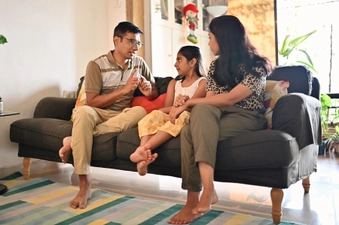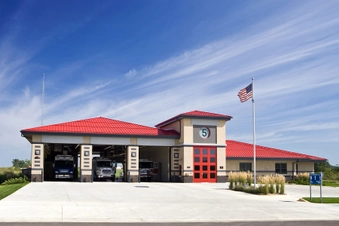11 Ways to Manage Your Mental Health as a Caregiver

Find Your Community
Classic congenital adrenal hyperplasia (CAH) is rare, but that doesn’t mean your family has to face it alone. Ask your child’s health care team to connect you with local or national support groups. You can also find in-person or virtual support through the CARES Foundation. You’re more likely to feel reassured and empowered when you connect with people who understand what you’re dealing with.

Learn as Much as You Can
Prepare yourself for the future by diving deep into information on your child’s condition. If you want more than what’s typically provided at the doctor’s office, ask your child’s health care team to direct you to reliable resources. They might suggest groups such as the CARES, Magic, or National Adrenal Diseases foundations.

Ask More Questions
Keep the conversation going with your child’s health care team. Make an appointment just to talk about any concerns or ask new questions that pop up as your child grows. Don’t leave without clear answers. If the doctor uses a lot of medical words you don’t understand, ask them to repeat themselves using simpler terms.

Learn How to Talk About Sex Differences
Some children with classic CAH are born with sex organs that may be bigger than usual or look more like the opposite sex. This can trigger anxiety, but it’s rarely an urgent medical problem. Talk to your doctor about the best way and time to discuss any sex differences with your child, as well as with friends and family. A licensed mental health professional can also help.

Practice Self-Care
Parents of kids with lifelong conditions like classic CAH are more likely to have symptoms of anxiety, depression, and burnout. But there are things you can do to prioritize your well-being. Try to eat nutritious food, get enough sleep, and exercise regularly. Walks around the neighborhood count. Do your best to keep up with your own medical care and set aside time for yourself. Lean on friends and family for support if you can.

Know Your Child’s Rights
Consider a 504 plan. This is a legal document that ensures equal access to learning, sports, and extracurricular activities. This plan outlines your child’s medical needs and lists the necessary steps to maintain their health and safety at places like school, day care, or camps. For more information on making a 504 plan, visit the CARES Foundation website or ask your child’s health care team for guidance.

Meet Local Emergency Workers
Visit your local fire station or emergency medical services (EMS) provider. Introduce yourself, share your address, and explain that your child has adrenal insufficiency. Find out if EMS workers can legally give your child a hydrocortisone shot if they have an adrenal crisis and show them how to do it. If the law says they can’t, ask for help setting up other emergency practices. Having a plan in place can give you peace of mind.

Talk to a Mental Health Professional
Your child’s care team may include a mental health professional who specializes in supporting parents and caregivers of kids with classic CAH. They can help you accept your child’s diagnosis and offer strategies to manage the unique challenges that come with caring for a child with a serious health issue. For general mental health support, ask for a referral to a therapist who treats adults.

Build an Informed Support Network
At some point, you’ll need to leave your child with friends, family, or other community members. To put your mind at ease, consider bringing your loved ones or other caregivers to a medical appointment so your doctor can go over the medical needs of someone with classic CAH.

Help Your Child Be Independent
Researchers have found that adolescents who have classic CAH feel good about their health and most have no trouble controlling their condition. Discuss with your child’s doctor the right time to transition to self-management of medication. A mental health professional who works with children or teens who have classic CAH can also help your child build independence and self-esteem.

Give Yourself Time to Adjust
The first few years of your child’s life might present the most challenges, but you may notice your worries lessening as your child grows. In one study, parents of children with classic CAH aged 4-12 said they felt satisfied with their child’s health and weren’t afraid of a salt-wasting crisis. But everyone’s experience is different. Reach out for help if you or your child have trouble managing stress or CAH symptoms on your own.
Show Sources
IMAGES PROVIDED BY:
- DigitalVision/Getty Images
- DigitalVision/Getty Images
- DigitalVision/Getty Images
- Moment/Getty Images
- DigitalVision/Getty Images
- E+/Getty Images
- iStock/Getty Images
- Moment/Getty Images
- E+/Getty Images
- Moment/Getty Images
- Maskot/Getty Images
SOURCES:
Mimi Kim, MD, MSc, co-director, Congenital Hyperplasia Clinic, Children’s Hospital Los Angeles; associate professor of clinical pediatrics, Keck School of Medicine of USC (University of Southern California), Los Angeles.
Courtney A. Finlayson, MD, endocrinologist, Ann & Robert H. Lurie Children’s Hospital of Chicago; associate professor of pediatrics (endocrinology), Northwestern University Feinberg School of Medicine, Chicago.
Adrienne Marks, PMHNP, patient educator, Ann & Robert H. Lurie Children’s Hospital of Chicago; psychiatric mental health nurse practitioner, Mindful Health Solutions, San Francisco.
International Journal of Environmental Research and Public Health: “Caring for a Child with Congenital Adrenal Hyperplasia Diagnosed by Newborn Screening: Parental Health-Related Quality of Life, Coping Patterns, Needs.”
Journal of Pediatric Psychology: “From Knowing Nothing to Knowing What, How and Now: Parents’ Experiences of Caring for their Children With Congenital Adrenal Hyperplasia.”
CARES Foundation: “Support Groups,” “CARES Foundation: Worksheet,” “Visiting Your EMS Provider.”
National Adrenal Diseases Foundation: “Home.”
Journal of Pediatric Urology: “Beyond changing diapers: stress and decision-making among parents of girls with congenital adrenal hyperplasia seeking consultation about feminizing genital restoration surgery.”
Children’s Hospital Colorado: “Parent Toolkit: Parenting a Child With a Chronic Illness.”
Internet Interventions: “Supporting parents of children with chronic conditions: A randomized controlled trial of web-based and self-help ACT interventions.”
Cleveland Clinic: “Caregiver Burnout.”
International Journal of Pediatric Endocrinology: “Physical, social and societal functioning of children with congenital adrenal hyperplasia (CAH) and their parents, in a Dutch population.”